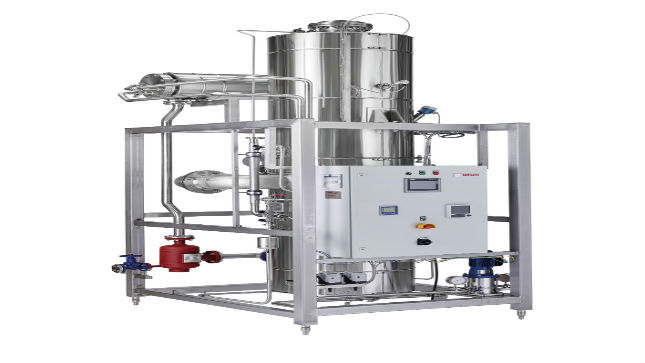Repatha regresses atherosclerosis in patients with coronary artery disease

Nearly two-thirds of patients experienced plaque regression with Repatha on top of optimized statin therapy.
Amgen has announced that adding Repatha (evolocumab) to optimized statin therapy resulted in statistically significant regression of atherosclerosis in patients with coronary artery disease (CAD). The detailed results from the GLAGOV Phase III coronary intravascular ultrasound imaging trial were presented at a Late-Breaking Clinical Trials Session of the American Heart Association (AHA) Scientific Sessions 2016 and simultaneously published in the Journal of the American Medical Association.
The GLAGOV study evaluated whether Repatha, a proprotein convertase subtilisin/kexin type 9 (PCSK9) inhibitor for the treatment of certain patients with elevated low-density lipoprotein cholesterol (LDL-C), would modify atherosclerotic plaque build-up in the coronary arteries of patients already treated with optimized statin therapy, as measured by intravascular ultrasound (IVUS) at baseline and week 78.
"The cardiovascular community began conducting imaging studies with LDL-C therapies to measure slowing of atherosclerotic disease progression. This study shows that maximal LDL-C reduction with Repatha can actually regress coronary atherosclerotic disease compared with statins alone," said Sean E. Harper, executive vice president of R&D at Amgen. "In fact, nearly two-thirds of patients on Repatha in this trial, the vast majority of whom were already on high to moderate intensity statin therapy at baseline, experienced a reduction in plaque burden."
The study met its primary objective showing that treatment with Repatha resulted in a statistically significant regression from baseline in percent atheroma volume (PAV), which is the proportion of arterial lumen occupied by plaque. Patients in the Repatha arm experienced a 0.95% decrease versus baseline in PAV compared with an increase of 0.05% versus baseline in patients receiving optimized statin therapy plus placebo. The difference between the two comparators was statistically significant. In addition, adding Repatha yielded plaque regression in PAV for a greater percentage of patients than for those receiving placebo (64.3% versus 47.3%, respectively). At baseline, 98% of patients in both arms were on high to moderate intensity statin therapy.
Patients in the Repatha arm experienced a mean decrease in normalized total atheroma volume (TAV), which is a measure of plaque volume, of 5.8mm³ compared with 0.9mm³ seen in the placebo arm. The difference between the two comparators was statistically significant. Additionally, adding Repatha yielded plaque regression in TAV for a greater percentage of patients than placebo (61.5% versus 48.9%, respectively).
"Based on previous studies, we did not know whether GLAGOV would show additional plaque regression at LDL-C levels below 60 mg/dL," said Stephen J. Nicholls, professor of Cardiology and deputy director, South Australian Health & Medical Research Institute, Adelaide, Australia. "One of the most compelling results from GLAGOV is the continued reduction of plaque at LDL-C levels well below commonly accepted thresholds."
At baseline, patients had a mean LDL-C of 92.5 mg/dL across both treatment arms. During 78 weeks of treatment, the time-weighted mean LDL-C level was 36.6 mg/dL in the Repatha arm, which represents a reduction of 59.8%, compared with 93.0 mg/dL in the placebo arm. At week 78, the mean LDL-C in the Repatha arm was 29 mg/dL, which represents a 68.0% decrease from baseline, and in the placebo arm was 90 mg/dL.
An exploratory analysis evaluated the level of plaque reduction achieved in the 144 patients with baseline LDL-C levels below 70 mg/dL (the lowest treatment target among the current global guidelines). In this analysis, these patients experienced the greatest decrease in plaque burden from baseline (change in PAV) with Repatha compared with placebo (-1.97% versus -0.35%, respectively). In addition, more than 80% of patients in this subset experienced plaque regression (by change in PAV) with Repatha (81.2% Repatha; 48.0% placebo).
Harper continued: "The compelling data from GLAGOV remove any scientific doubt about the ability of Repatha to lower LDL-C and the impact it has on the critical underlying disease process. We remain concerned that many patients are experiencing barriers to accessing Repatha, despite their physician's treatment recommendations. We look forward to our outcomes study, FOURIER, and will continue to work with payers to improve access for patients who need additional LDL-C lowering."
Related News
-
News Google-backed start-up raises US$600 million to support AI drug discovery and design
London-based Isomorphic Labs, an AI-driven drug design and development start-up backed by Google’s AI research lab DeepMind, has raised US$600 million in its first external funding round by Thrive Capital. The funding will provide further power t... -
News AstraZeneca to invest US$2.5 billion in Beijing R&D centre
Amid investigations of former AstraZeneca China head Leon Wang in 2024, AstraZeneca have outlined plans to establish its sixth global strategic R&D centre in China. Their aim is to further advance life sciences in China with major research and manufact... -
News Experimental drug for managing aortic valve stenosis shows promise
The new small molecule drug ataciguat is garnering attention for its potential to manage aortic valve stenosis, which may prevent the need for surgery and significantly improve patient experience. -
News How GLP-1 agonists are reshaping drug delivery innovations
GLP-1 agonist drug products like Ozempic, Wegovy, and Mounjaro have taken the healthcare industry by storm in recent years. Originally conceived as treatment for Type 2 diabetes, the weight-loss effects of these products have taken on unprecedented int... -
News A Day in the Life of a Start-Up Founder and CEO
At CPHI we work to support Start-Up companies in the pharmaceutical industry and recognise the expertise and innovative angles they bring to the field. Through our Start-Up Programme we have gotten to know some of these leaders, and in this Day in the ... -
News Biopharmaceutical manufacturing boost part of new UK government budget
In their national budget announced by the UK Labour Party, biopharmaceutical production and manufacturing are set to receive a significant boost in capital grants through the Life Sciences Innovative Manufacturing Fund (LSIMF). -
News CPHI Podcast Series: The power of proteins in antibody drug development
In the latest episode of the CPHI Podcast Series, Lucy Chard is joined by Thomas Cornell from Abzena to discuss protein engineering for drug design and development. -
News Amgen sues Samsung biologics unit over biosimilar for bone disease
Samsung Bioepis, the biologics unit of Samsung, has been issued a lawsuit brought forth by Amgen over proposed biosimilars of Amgen’s bone drugs Prolia and Xgeva.
Recently Visited
Position your company at the heart of the global Pharma industry with a CPHI Online membership
-
Your products and solutions visible to thousands of visitors within the largest Pharma marketplace
-
Generate high-quality, engaged leads for your business, all year round
-
Promote your business as the industry’s thought-leader by hosting your reports, brochures and videos within your profile
-
Your company’s profile boosted at all participating CPHI events
-
An easy-to-use platform with a detailed dashboard showing your leads and performance







.png)



